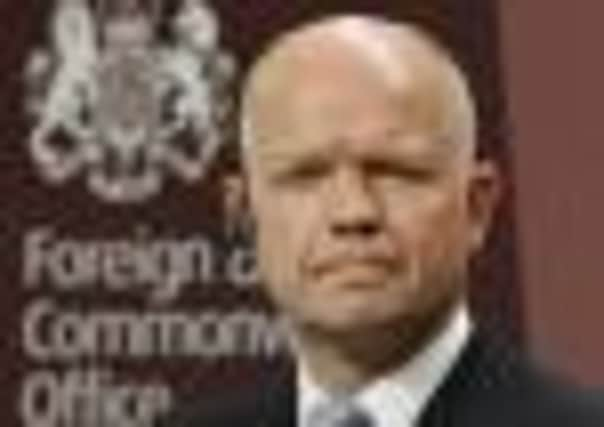Bernard Ingham: After Libya, we need to rethink our place in a radically changing world


After six months Gaddafi no longer runs the country, though whether who or what follows him turns out to be a good thing is in the lap of the Gods.
It is the same story wherever the Arab Spring is moving into barren autumn. We did not make a good fist of Iraq where Tony Blair led us by deceit. Nobody would bet on our end game in Afghanistan bringing stability to that murderous land where steadily we lose our best soldiers.
Advertisement
Hide AdAdvertisement
Hide AdAnglo-US relations have probably never excited less comment because they are nothing to write home about. We are profoundly unhappy standing partly outside an EU bossed by France and Germany and we are otherwise overrun by immigrants seeping through our porous borders into a land lifting with lawyers chasing asylum seekers as well as ambulances.
Perhaps not even the Duke and Duchess of Cambridge on permanent tour of the Commonwealth could revive that institution.
It seems to exist merely as an outlet for anti-colonialist sentiment while the ex-colonies hold their hands out, as ever, for more cash from their former masters.
Meanwhile, we dispense overseas aid without apparently asking ourselves why, natural disasters apart, it never seems to improve anything, especially in Africa.
Advertisement
Hide AdAdvertisement
Hide AdAnd power almost perceptibly moves eastwards with each debt crisis on either side of the Atlantic. China, the last great bastion of a curious kind of Communism, even has the temerity to lecture the West on the failings of its capitalism. Oh, how the mighty are fallen.
It is against this uncomfortable background that we should perhaps ask William Hague, the Foreign Secretary, to explain what we are about in this world. Where do our interests lie on this dangerously unstable planet? How are we trying to serve them? Indeed, do we have a foreign policy any more?
The very fact that I am driven to ask these questions shows that a potentially dangerous policy vacuum is developing.
We need something more than an increasingly forlorn chase after a protocol to replace the unproductive Kyoto Treaty on the grossly over-hyped phenomenon of global warming.
Advertisement
Hide AdAdvertisement
Hide AdCertainly politicians need to understand – as I suspect Islamic militants do – that Britons, like Americans, are war-weary and utterly disillusioned with the limited and inadequate response of their allies. America under Obama has signalled that Libya was a campaign too far for the USA.
The world is running out of policemen to keep order and President Assad of Syria seems to know it. Sticks and stones may break my bones, he seems confidently to be saying, but calling will not hurt me.
The time has come to take stock of ourselves and the world. In doing so, I go back to the Falklands conflict where Margaret Thatcher learned one very great lesson: never ever give the wrong signals.
It remains unclear whether winding down our colonial reach, hawking the idea of ceding sovereignty to the Argentinians on condition they leased it back to the Falklands and cutting our commitment in the form of the Antarctic Survey vessel, Endurance, were seen as come-on signals in Buenos Aries. That was not the intention, but…
Advertisement
Hide AdAdvertisement
Hide AdSo what signals are we emitting today? I think they are distressingly confused. We cannot afford any more overseas adventures and the public have had enough of them. We are reduced to diplomatic and economic pressure – words and sanctions, the latter inevitably honoured in the breach by some of our allies. But we retain the pretence of a world power.
At the same time, we are seen to be palsied of will. Our security forces do a remarkable job defending us from terrorists, especially of the Islamic variety, but otherwise we seem to be the softest of soft touches – slaves to human rights in the face of those who don’t know and don’t want to know the meaning of the term.
As for the West, it’s just the UK writ large. Let’s hope it never comes to a test of wills.
Nationally, we need to recognise pretty sharply that you cannot be whatever power you want to be in the world on indebtedness and stagnation. Equally, you cannot exercise influence unless you know what you want to achieve and have the will to succeed.
Speak up, Mr Hague. At risk of repeating myself, Britain must adjust to reality and seek a new glorious history independently doing good by stealth.